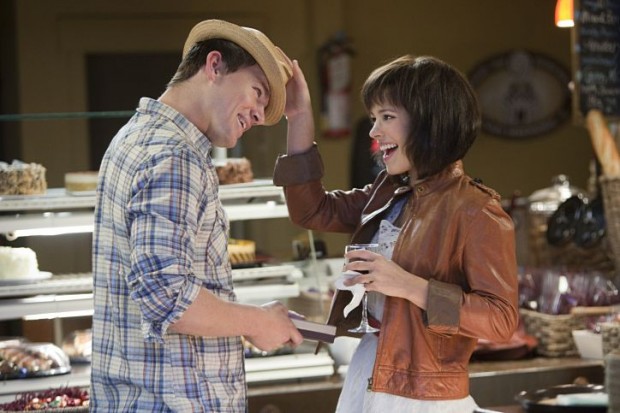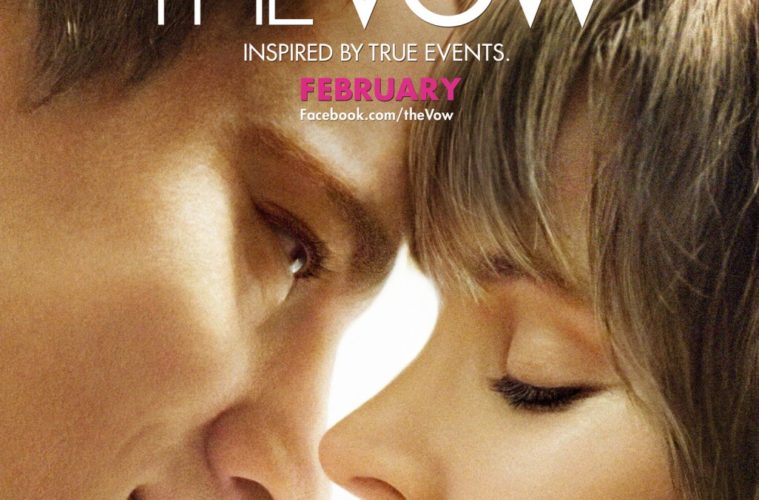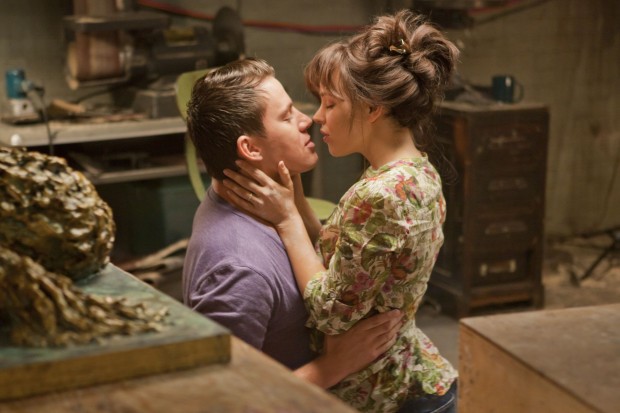There’s a weird kind of war at the heart of The Vow that the film never manages to resolve. At the core of this story is an existential and moral dilema that could have served as the engine for an engaging and challenging story. Surrounding this center, and smothering it, are the trappings of a common romantic dramedy. The two opposing forces never cohere, never meld and never find harmony with one another. This is important, because that conflict of theme and tone cripples an otherwise rudimentary-but-charming film at the same time that it diminishes a concept that is intriguing, challenging and worth considering.
The film begins with a married couple, Leo and Paige (Channing Tatum and Rachel McAdams), enjoying a night out. In the car, alone on a snow-blanketed street, she unbuckles her seatbelt for some romance, only to have her efforts cut short when a truck skids into the back of their car. Leo waits by the unconscious Paige’s bedside for weeks until she finally awakens, only to discover that she has no memory of him.
Intercut with the scenes of Leo worrying are moments from their courtship, comprised mainly of the kind of romantic film wish-fulfillment we have all seen time and again. These scenes have an easy charm thanks to the surprising chemistry of the two leads, and the surprisingly earnest and affecting work of Tatum. It all conspires to make the audience care about and root for this seemingly flawless couple, and it works. The stage is set, then, for an intense, emotionally challenging experience that brings into question the very nature of love, experience, and self.
Sadly this potential is both over-exposed and lost among the ham-fisted narration that is delivered with a tone closely approaching confusion. The theme is spelled out in spades and yet is touched only insofar as it relates to a kind of fate, or inevitability. We know that this couple is meant to be together, and thus the loss of what amounts to five years worth of memories becomes just a small obstacle on the course to true movie-style happiness.

The moral implications of this couple’s past being removed from one of them minds, of her return to a previous sense of self, is never really touched upon in a way that makes full use of the gray area. Every step away from Leo is a betrayal, not a decision fraught with ambiguity and pain. Of course she feels bound to Leo, though solely through an institutional contract that by all rights has lost all meaning. Here was another shot at doing something interesting, lost in the haze of simple, saccharine movie tropes. The direction, music, and dialogue all work hard at trying to valiantly slay this deeply rooted existential debate, and they succeed to a point. Aside from a last-act bit of surprisingly complex moral equivocation, the way we are supposed to feel about every single act and character is heavily telegraphed.
McAdams and Tatum manage to work hard at making their characters believable and effectively empathetic. They pull this off, but they seem torn between understanding the implications of this plot and understanding their role as being avatars for romantic fantasy. Thus, their moments for conflict hover dangerously close to the precipice of interest, only to fall back to the leaden floor of a common romantic drama.
The amount of enjoyment you get from this film will be largely contingent on what you expect from it. As your standard romantic drama with dollops of comedy thrown in for flavor, this is well above the pack in terms of humor and actual pathos. As a proper exploitation of a very promising premise, this film falls far short and leaves you wishing that the makers of this film had more courage and ambition than they expressed.
The Vow is now in wide release.


